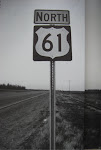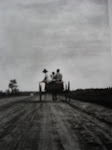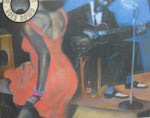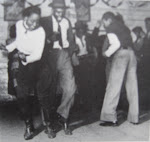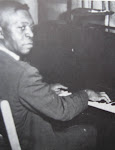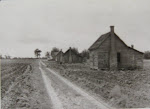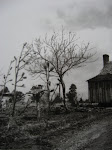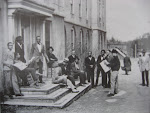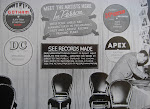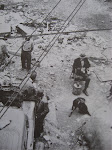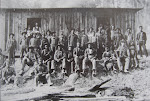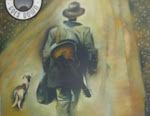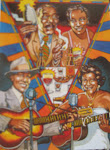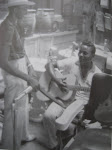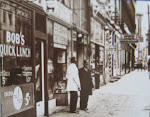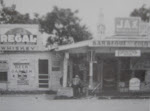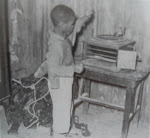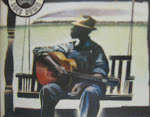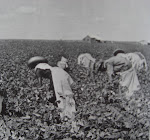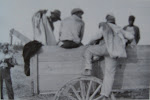
Last night, a serendipitous musical event occurred here on Vashon Island. Blues musician John (Paul) Hammond came to town to play a benefit concert... and the fact of that performance dovetails nicely with the on-going, gradual posting of my 1970 screenplay.
In the first place, his famous father, the other John Hammond of record producing/artist discovery fame, sought to include Robert Johnson in his seminal Spirituals to Swing concerts (December 1938), but learned instead of Johnson's then-unexplained death. He still chose to play Robert's music on stage before starting the concert proper.
And decades later, Hammond Sr. was closely involved, first in the issue of the great Robert Johnson single LPs, and then in the long-delayed creation and release of the bestselling Johnson CD box set. I actually spoke to him by telephone in the mid-Eighties, back in the heyday of my attempts to sell Hellhound to Hollywood, inquiring about the rights to Robert's music. (By the way, he blamed oddball researcher Mack McCormack and copyrights-grabber Steve LaVere for the confusion and costly delays.)
Son John probably heard Johnson's 78s in his father's home as a child; he's not sure about that, but from the beginnings of his own tentative fumbling with guitar and vocals, the younger Hammond did clearly have an affinity for Johnson. He has likely covered nearly all of Robert's 29 songs on one album or another over the years (the compilation shown above documents some of them). And he also "starred" in the Search for Johnson documentary made in the early Nineties.
Hammond's own first recordings were on the 1963 Blues at Newport album, which I latched onto in '64; when I heard his powerful performances of three songs, including Johnson's "Me and the Devil" and Chuck Berry's great "No Money Down," loudly welcomed and urged on by several elder black bluesmen, I thought there and then, "All right, a white man can play and even sing the blues!"
It helped me feel vindicated in my own mid-Sixties love for the country blues, and encouraged me to think seriously about writing a screenplay on Johnson and the hard life of a Depression Era bluesman. Over the next couple of years I researched as best I could--there wasn't much about Johnson specifically, but more and more stuff was appearing to detail the complex existence of other Thirties blues figures--and then wrote the script, revised and ready by 1970 for copywriting and a hoped-for quick movie sale. (No such luck, then or later.)
But that's one reason why I'm publishing my screenplay on line now... I'm asking you readers to remember one thing: I wrote Hellhound many years before Greenberg's surreal Love in Vain book or the excellent Searching for Johnson book by Peter Guralnick, not to mention the hit CD set, Hammond's solid documentary, and the later docudrama featuring Danny Glover and Keb Mo.
At any rate, I hereby acknowledge my long-standing debt to the brilliant, even heroic, example of the two Hammonds, whose separate efforts have enriched the lives of millions of listeners.
And by the way, last night's concert was great, with Hammond ranging freely over the history of the blues and thereafter--John Hurt to Howlin' Wolf, Billy Boy Arnold to Tom Waits, and his own originals to, of course, Robert Johnson's eerie and impassioned "Come On in My Kitchen."
We could hear the wind howl.
